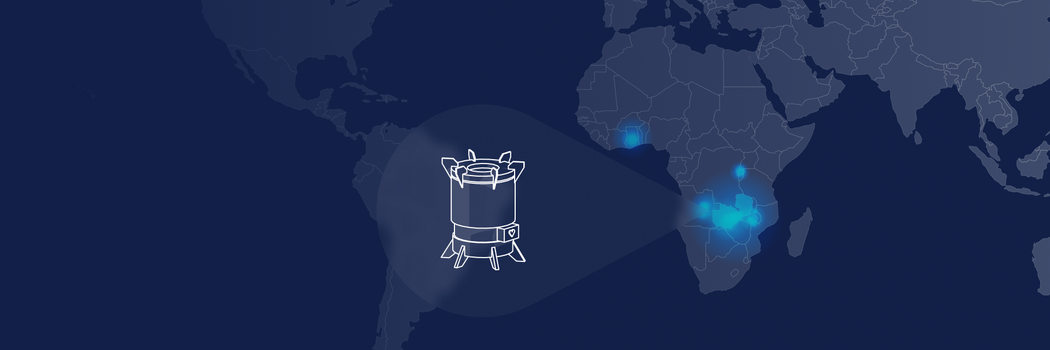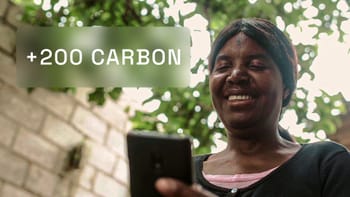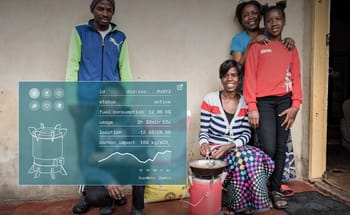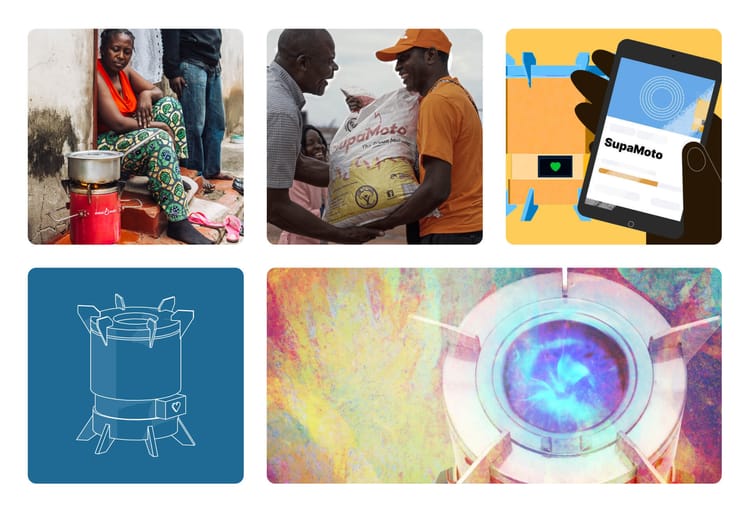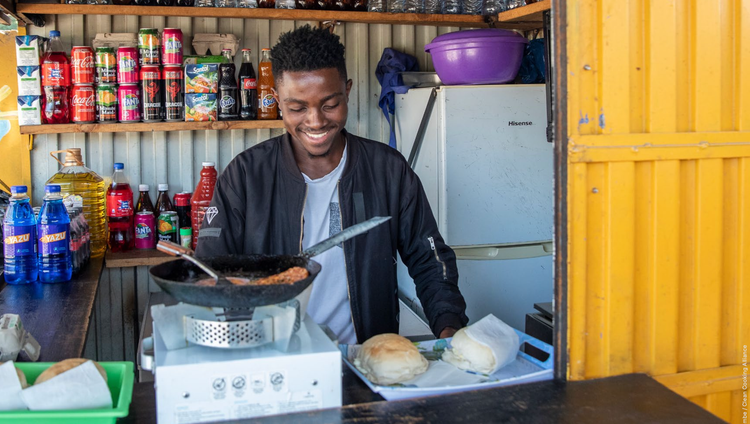The Mission
In this pivotal year, the 2024 IEA Paris Summit on Clean Cooking in Africa establishes a widely-endorsed set of commitments for achieving universal access to clean cooking. Tracking progress on these commitments requires publicly reported data from sources of truth that can be verified. Good quality data is also the basis for financing access to clean cooking, through carbon market mechanisms such as Carbon Credits and Internationally Transferred Mitigation Outcomes (ITMOs) that are a key mechanism for implementing Article 6.2 of the Paris Agreement.
Mission Control for Clean Cooking
Mission Control is a decentralised digital registry and data-sharing platform for clean cooking, that also provides a pathway for digital Measurement, Reporting and Verification (dMRV) of Mitigation Outcome claims.
Its purpose is to enable all Clean Cooking funders, project developers, cookstove distributors, outcomes purchasers, and other stakeholders to share real-time data about projects, devices, credits/ITMOs, and financing. This should enable real-time monitoring and tracking of progress against the global commitments, demonstrate where there are market gaps or opportunities, and significantly accelerate the processes of verifying and financing clean cooking outcomes claims.
Mission Control enables networks of different clean cooking device types that are operated by different device distributors to be aggregated within decentralised physical infrastructure networks, to form utility-scale solutions.
The incentive to use Mission Control comes from the direct value to users. This includes having pathways to access the most advanced digital measurement, reporting, and verification (dMRV) services and to participate in innovative climate and sustainable financing mechanisms that are linked to high-integrity Carbon Credits and ITMOs.
Offered as Digital Public Goods
The Mission Control software applications and underpinning public blockchain infrastructure are offered and operated as digital public goods.
Digital public goods are defined by the UN as open-source software, open data, open artificial intelligence models, open standards and open content that are designed to improve lives and livelihoods around the world. By design, they adhere to privacy and other applicable laws and best practices, do no harm, and help to achieve the Sustainable Development Goals.

Voluntary disclosure and self-reporting
Mission Control provides an attestation mechanism, using Verifiable Claims, which is a high-definition data standard, for voluntary disclosure and reporting related to clean cooking projects, devices, and mitigation outcomes. This implements W3C web standards for Verifiable Claims and Verifiable Credentials. Publishing claims through the registry does not require any intermediaries. It provides a completely voluntary form of self-reporting, with built-in accountability and transparency mechanisms. Attestations can be made about projects, devices, carbon credits or ITMOs, and financing.
Mission Control provides standard templates and automations to simplify the steps for registering entities, uploading device credentials, making attestations, and verifying claims.
With privacy and data protection
Users of Mission Control own and control their data. Publicly visible data shows anonymous statistics, such as the numbers and general locations of devices, claims transactions, stocks and flows of credits, and network performance metrics.
All personally identifiable data added to the data storage layer of the decentralised public registry are protected by end-to-end encryption and private data are only sharable with the voluntary consent of data subjects.
Self-issuance and digital certification mechanisms
Self-issued Attestations published through the Decentralised Registry may optionally be subjected to evaluation and verification by independent agencies and digital MRV services. There are no restrictions to who offers these services, as the registry functions in tandem with an open and un-opinionated marketplace. Based on their evaluation of these claims, verifiers and verification services may issue digital certificates in the form of Verifiable Credentials. These digital credentials may be issued for Project Certifications, Device Certificates, Verified Emission Reduction Certificates, Internationally Transferred Mitigation Outcome Certificates, and other relevant forms.

Self-certification with automated digital Measurement, Reporting and Verification mechanisms should be transformative in accelerating access to clean cooking, as this enables claims to be processed at a speed, scale, cost, and level of integrity that has not previously been possible without the use of Web3 and data technologies.
Clean Cooking Agent Networks
Mission Control will provide the mechanisms for digitally connecting decentralised hardware device networks to decentralised networks of human agents for promoting, distributing and servicing clean cooking devices, and providing support to device users. The UNICEF-led Youth Opportunities Marketplace (Yoma) has pledged to mobilise a youth workforce for scaling up access to clean cooking in Africa. This initiative is now mobilising private capital through the Liechtenstein Finance Centre, to form a youth-centric fund that will in its first phase focus on investments into clean cooking projects.
Open-source development
Mission Control is created by IXO as free and open-source software, meaning anyone can use and modify it. Emerging Cooking Solutions (ECS) has played a key role in providing expert knowledge and testing the software in real-world conditions.
Impacts AI is a cooperatively owned and governed platform that provides decentralised digital MRV services. Together with ECS, Impacts AI was an award-winner of the Clean Cooking Alliance and UNCDF Digital Innovation for Clean Cooking Challenge in 2023. ECS has been selected to implement the national modern energy cooking mitigation activity in Zambia under the government's Article 6.2 Carbon Markets Framework, for which the Emerging Platform is being configured to meet the requirements of the ITMO mechanism.
Software developers and clean cooking stakeholders are invited to join the cooperative effort to further develop Mission Control, support its adoption, and use this as a building-block for further applications.
Autonomously governed
Unlike traditional centralised command-and-control systems, Mission Control is decentralised, autonomously governed, and permission-less to use. The software runs on the Impacts Hub blockchain which implements transparent and accountable on-chain governance mechanisms. Further development of Mission Control will be hosted through the Impacts Venture Cooperative, using its collaboration and governance tools.
